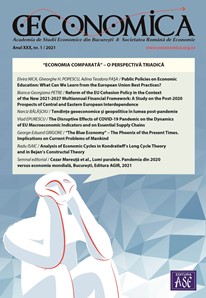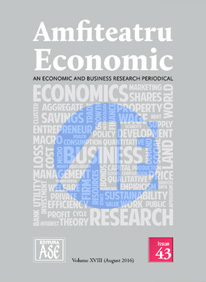
Power Through Play: Thinking Energy Outside the Box MIND(s that filled) THE GAP(s) [XIV]
According to the World Bank (2019), roughly 1 billion people have no access to electricity whatsoever [1], but a Nigerian-American entrepreneur thinks football might be the solution. How is it possible?
The story begins with Harvard graduate Jessica O. Matthews. While in her junior year of college, Matthews co-created the Soccket, a soccer ball that can transform the kinetic energy created from being played with into electricity. Half an hour of motion will create about 3 hours of energy and this could be just the sustainable solution needed to end personal energy poverty. Now the founder and CEO of Uncharted Power, the company named by Forbes “The Anti-Silicon Valley Energy Startup”, Matthews aims to help developing countries achieve sustainability through play.
Jessica O. Matthews is a 32 years old Nigerian-American inventor and entrepreneur, born in Poughkeepsie, NY. During her teenage years, Matthews was highly involved in science, leading her to participate in numerous fairs and competitions. Moreover, over the same period time, she became involved with track and field. These two bits of information became extremely relevant to her story, as a decade later she went on to transform her two passions into a million-dollar company.
But the origin story of her invention contains one last, important element: her Nigerian descent. Belonging to a country that lacks reliable access to electricity led her to experience at first-hand the problem faced by about a billion people globally. In one interview she told the story of a wedding she attended in Nigeria. There, in the middle of the celebrations, the power cut off, forcing the guests to rely on a diesel generator. This was not only unreliable, unsustainable and expensive, but it also had a huge impact on their wellbeing. Matthews recalls that everyone at the wedding got dizzy and started to cough. The huge impact these generators have on health is also supported by numerous studies, one of them finding that permanently living with a diesel generator is equivalent with smoking two packs of cigarettes per day.
After graduating high school, Jessica Matthews went on to study business at Harvard University. It was there where she came up with the idea of Soccket. In 2015, after graduating, she went on to open her own company: Uncharted Play (now known as Uncharted Power). The company creates innovative products that generate energy in a clean and sustainable way: the soccer ball that produces energy while hit, a jumping rope that does the same with activity, a skateboard that transforms motion into power. But the odds were not in her favour. According to a research conducted by Project Diane [2], of all venture deals from 2012 to 2014 only an incredibly small fraction (24 out of over 10,000) were directed to black female-led start-ups, such as that of Jessica Matthews. Moreover, on average, these start-ups manage to raise only about $36,000 of outside funding. There are actually only 11 start-ups founded by black women that were able to raise more than $1 million in venture capital. Matthews beat the odds and was able to raise in just a few months $7 million in venture capital funding [3].
Her success can be attributed to a series of different factors. Firstly, having graduated Harvard provided her with both the necessary knowledge and the much-needed network that helped make her idea a reality. Secondly, her business was born from passion, a fact that provided her with the ambition, resilience and resourcefulness needed to fight for her idea. Finally, it is undeniable that one of the main factors that sets her business apart from the rest is its dedication to a social cause.
The company has a clear mission: Universal Access to Clean, Resilient, and Affordable Power. As the global demand for energy is continuously increasing, the need for sustainable sources follows. According to Binary District (2019), without advances in energy efficiency, the combined ICT industries (e.g., telecom, data centers) could consume 20% of all the world’s electricity by 2025. Furthermore, according to Markets and Markets (2019), the Internet of Things (IoT) in the smart cities market is projected to grow from USD 79.5 billion in 2018 to USD 219.6 billion by 2023. However, this power demand cannot be addressed with the existing infrastructure. The above ground power distribution is not resilient, and the below ground power distribution is not accessible. Moreover, off-grid battery systems are costly and require frequent maintenance and replacements. Thus, the company proposes the Uncharted System, which has three core parts: the accessible conduit, the high-resolution power distribution and monitoring, and the edge colocation [4].
Uncharted Power now has 15 global patents and patents pending, as well as support from investors and board members such as Disney, Magic Johnson, Backstage Capital, BBG Ventures, and others, thus planning to make clean, safe, secure and low-cost power accessible to everyone. By 2021, Uncharted Power intends to successfully demonstrate an alternative standard to power infrastructure and by 2025 their goal is to expand internationally [5]. Moreover, as of 2020 they have a team of 26 employees [6].
Building a diverse team was very important for Jessica Matthews from the beginning. Her experience of raising venture capital in the Silicon Valley convinced her to move the office from Tribeca to Harlem in New York, because, as she would later state, in order to be able to serve a global market, it is essential to not forget how diverse the world is. Thus, Harlem was the best choice as it is one of the most diverse New York City neighbourhoods.
Matthews’ fight for equal opportunities does not stop at providing sustainable power alternatives to people from developing countries. She has made it her goal to build a diverse working environment. In an interview for Forbes [7], Matthews explained that half of the company’s stuff are women, which is somewhat uncommon among energy companies. Furthermore, about 30% to 40% of the staff are either Black or Hispanic. Moreover, Matthews has also set up the Harlem Tech Fund [8]. This is a non-profit arm of Uncharted Power that aims to support 100 new start-ups and offer technology training to 10,000 Harlem residents over the next two to five years.
All in all, whether or not football will become the thing that will lift a million people out of energy poverty is still unclear. Despite this, what is certain is that Jessica Matthews managed to build a million-dollar company that has the potential of solving one of the modern society’s most prominent problems. Not only did she turn a blueprint into profit, but she did it while helping her community. Thus, Jessica Matthews is and will remain for a long time one of the most inspiring entrepreneurs.
References:
- World Bank (2019), 2019: Year in Review, www.worldbank.com, accessed May 2020.
- Project Diane (2018), The State of Black Women Founders, www.digitalundivided.com, accessed May 2020.
- Oscar Perry Abello (2016), This Woman Wants to Run Harlem’s First Billion-Dollar Tech Company, Next City, online edition, 20 Oct 2016.
- https://www.u-pwr.co/company.
- https://craft.co/uncharted-power.
- Emily Dao (2020), Uncharted Power CEO Explains the Biggest Problem in Energy and Why Magic Johnson Is Helping Her Company Solve It, The Rising, April 13, 2020.
- Tanya Klich (2018), The Anti-Silicon Valley Energy Startup, Forbes, online edition, 12 Nov 2018.
- https://www.harlemtech.fund.








